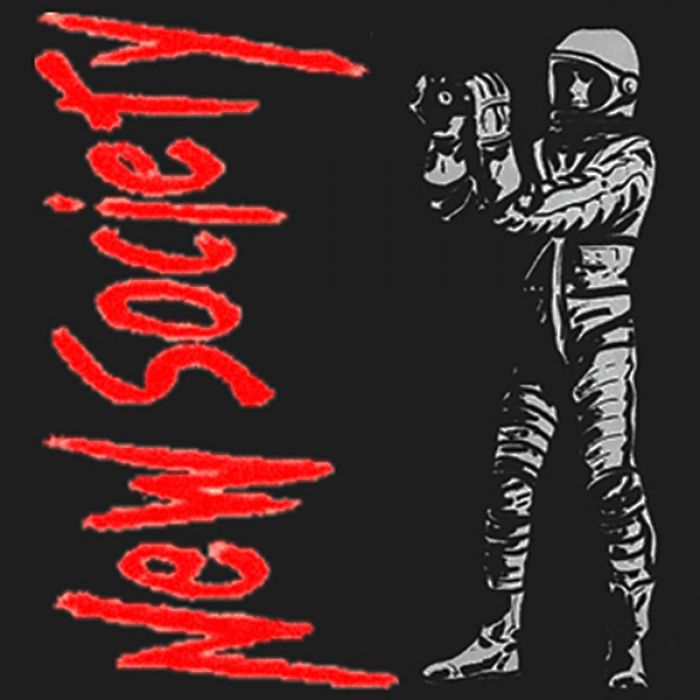Endless Frontier by New Society (Review)

Unlike The Children of Power and Christian Image, New Society — which consists of Rick Roman Jr. and various collaborators — lasted beyond the ’90s, and if their Soundcloud page is any indication, is still active to some degree. They’ve also been far more prolific, releasing music on Roman’s own Roman Recordings label as well as R.E.X. Music and Blacklight Records.
Endless Frontier compiles tracks from several ’90s-era releases (e.g., 1990’s True Faith, 1992’s Children of the Beast). It also features songs from an earlier Roman project called Society Mode which began in the late ’80s before turning into New Society. Influenced by Chicago’s Wax Trax! Records — a seminal label in the electro-industrial scene that released music by Ministry, Revolting Cocks, and Front Line Assembly, to name a few — New Society’s early recordings feature stripped down industrial fare that bears easy comparison to another important Christian industrial act, Deitiphobia. But Endless Frontier isn’t just for old school rivetheads; it’s more diverse than that.
There are shades of New Order’s energetic sequencer-driven pop in “Temptation (Kick Mix),” “New Election,” and “Rumors” while “Separation” and “Beware the Nicolaitan (In Between)” (a reference to an early Christian heresy) evoke Front 242’s aggressive “electronic body music.” “The Crucified” dabbles in lo-fi electro-punk and “White Room” and “The End Vision” (which liberally borrows from The Cure’s “A Forest”) are experiments in wiry post-punk. Speaking of experiments, there’s even some sound collage work with “The Real Pledge,” which critiques the unholy marriage of patriotism and consumerism. (The sound quality of some of these early recordings is a bit dodgy, but Roman has released more polished versions of certain songs as recently as 2017.)
New Society’s songs possess the sort of candor and bluntness you find in much of Christian industrial music. Which is precisely why it appealed to me when I discovered it back in the early ’90s (and continues to fascinate me to this day). It felt so much more real, edgy, and confrontational, especially when compared to the music emerging from CCM circles at the time. The lyrics’ “in your face”-ness and willingness to address topics including sexual temptation, social decay, political corruption, and hypocrisy, appealed to the part of me that wanted to rebel and fight the power while still remaining a faithful Christian.